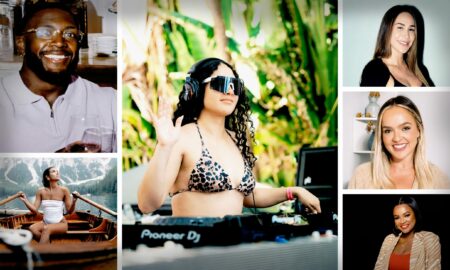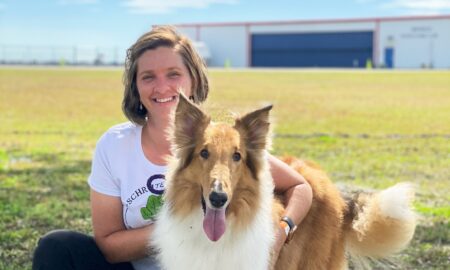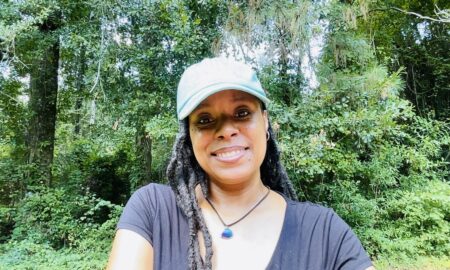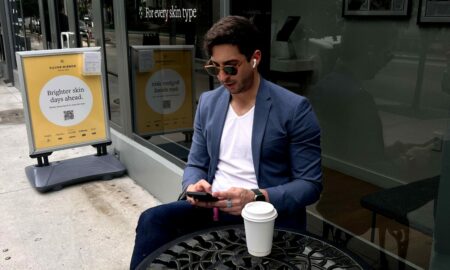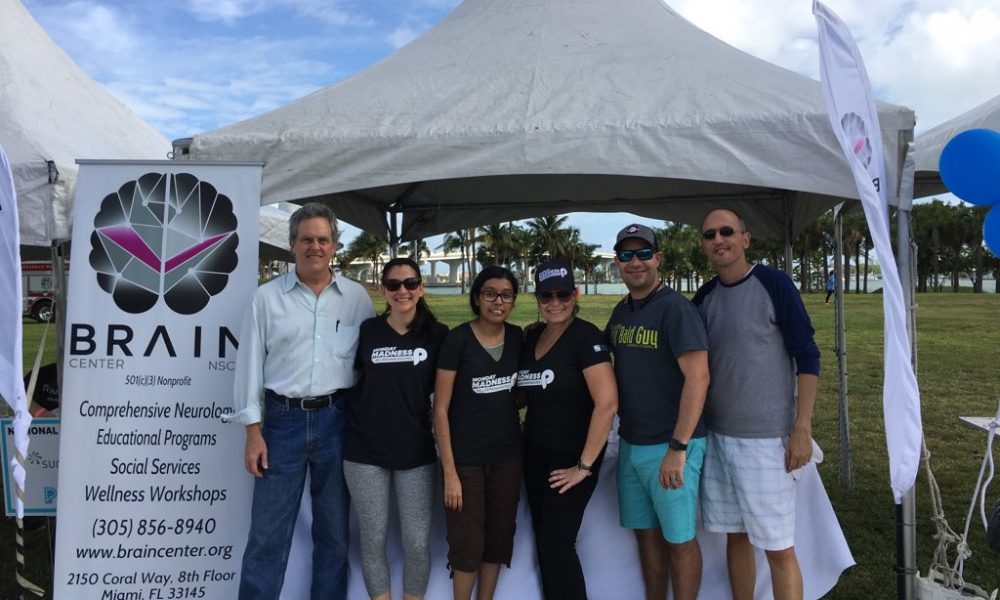

Today we’d like to introduce you to Dr. Jeffrey L. Horstmyer.
Dr. Horstmyer, can you briefly walk us through your story – how you started and how you got to where you are today.
It was a dream born of frustration.
As South Florida neurologists treated people with Multiple Sclerosis, Parkinson’s, Alzheimer’s and Stroke, the doctors realized that many of their patients weren’t getting the comprehensive care they desperately needed. They had trouble getting appointments at overburdened public health clinics, no one was teaching them how to best treat their conditions, and their family members were confused and frustrated about what was happening and how to best care for their loved ones.
So in 2010, a place was created where patients and their families could get all the services they need – with a goal of keeping patients healthy, at home, and out of the hospital. That place is the Brain Center.
A federally recognized not-for-profit organization, the Brain Center is focused on complete quality of life. Teams of coordinators and social workers work closely with patients, caregivers and doctors to answer questions – whether medical or non-medical. Instead of heading immediately to the emergency room, often a call to one of our nurses can provide the guidance needed to keep the patient safe and at home.
We connect South Florida’s best and brightest on behalf of this community. Whether it’s collaborating with Nobel Prize winning researchers, partnering with city, county and state officials or joining with other non-profits, we work with anyone who can contribute to better treatment and care of neurological patients.
The Brain Center began as the Neuroscience Centers of Florida Foundation in 2010. The founder and CEO is one of the most respected neurologists in the United States. Dr. Jeffrey L. Horstmyer completed his neurology residence training at Jackson Memorial Hospital, has had a large private practice, and served as founding chairman of the Department of Neurology at the FIU Herbert Wertheim College of Medicine. Early on, he realized the power of leveraging all of the resources in the region to create a collaborative environment for care and was a founding member of the MS Centers of Florida Foundation.
When the project began, it was part of a state network of doctors and patient advocates focused on multiple sclerosis. They all recognized that both doctors and social workers were needed to provide optimal care to patients. After a few years, the group was moved to Miami and worked with community leaders, researchers at Florida International University, and other social support organizations to create the foundation and begin to build programs for patients.
With support from key local lawmakers and the state legislature, the state began providing grants to support the Brain Center’s work, beginning with the purchase of an advanced MRI machine that is both offers low cost MRI scans for patients as well as being used for research.
Next, the Brain Center set up a social services network – no one in South Florida had a social worker focused on MS patients and their special needs. As they built out programs around MS, they expanded into Parkinson’s and began an affiliation with Park Optimists, the largest support group South Florida for patients with Parkinson’s. Park Optimists officially joined the Brain Center in 2017 and center staff handles grant writing and administrative services for the group.
As part of their work on Alzheimer’s, the Brain Center has created a popular Alzheimer’s caregiver course with Miami Dade College. In the course, caregivers learn how to take care of those suffering from the ravages of Alzheimer’s and share their experiences. After the class is over, the Brain Center offers a support group so families can continue to trade notes on how to deal with the physical and emotional toll of caring for a family member who is suffering. The class is now being offered in Spanish.
And the team also has been instrumental in development of the Miami-Dade Stroke Consortium, a non-profit that operates within the Brain Center and is focused on better treatment for stroke patients from the moment they call 911.
Years ago, efforts began to pull together the emergency room doctors and EMS chiefs from around Miami-Dade County to figure out how to give stroke patients life-saving medications as early as possible. At the beginning, the goal was to make sure that every hospital had the kind of CAT scan equipment necessary to evaluate patients before they could be treated for stroke. Thanks to their efforts, soon every hospital in South Florida had the ability to do a CAT scan 24 hours a day, seven days a week. After the consortium was incorporated as a nonprofit under the Brain Center, the Fire Officer’s Association of Miami-Dade County and 16 hospitals formally joined together to share best practices and just as important, begin pulling together data on how quickly patients were being treated, did they really have a stroke and the outcomes. It took years of work to get everyone on board and to find university partners to assist with sophisticated data analysis that EMS chiefs and hospital executives want.
Some early findings from the project are tantalizing – the number of patients with little or no disability at discharge has doubled in the last few years. Further analysis is under way to understand exactly why.
The stroke consortium is recognized as one of the most successful and comprehensive networks of its kind in the world.
Our Research
The Brain Center invests heavily in basic research that will lead to discoveries that will better diagnose or treat neurological patients.
Two current projects show great promise.
One is being conducted with Dr. Andrew Shalley, who won the Nobel Prize for Medicine and now works at the Veterans Administration/University of Miami. That effort – in conjunction with FIU Public Health Dean Tomas Guilarte — is aimed at developing ways to deliver an FDA-approved GnRH antagonist to the brain in an effort to slow the progression of Alzheimer’s.
If early tests in mice are successful, the goal is to begin human trials under supervision of the Brain Center to determine if it can affect Alzheimer’s.
The second research project is finding new ways to understand and diagnose brain function/dysfunction, particularly in MS patients but in those with other neurological disorders as well. Working with Dr. Sakhrat Khizroev and others, the Brain Center is working on a nanoparticle that can be delivered to the brain and then be detected in a standard MRI machine allowing recognition of brain abnormalities in a new and more sensitive way.
If successful, this technique, for instance, would allow doctors to know much more quickly whether MS medications were working and also dramatically reduce the amount of time necessary to test drugs and see if they work. It would open up entirely new ways to study what is going on in patient brains in real time and adjust treatments and medications accordingly – as well as deliver drugs directly to areas of the brain with the greatest signs of inflammation or dysfunction.
As part of our research activities, the Brain Center is affiliated with Florida International University, the Parkinson’s Foundation, Memorial Regional Hospital, and pharmaceutical companies to come up with standard data sets of information researchers will want to know about patients with neurological diseases. Using that standard data set at Brain Center clinics and other partners will give researchers critical data never before available.
Our future
By the end of this year, the Brain Center will have at least three neurology clinics up and running in different parts of Miami-Dade County to serve patients on Medicaid and ObamaCare. We want to be the neurology source in the county for those patients.
Our goal is to soon have our own facility that can serve as a one-stop center for all the services a patient or their family would need. That includes doctors, labs, imaging equipment, meeting spaces for support groups and rehabilitation services. Our goal is to treat body and mind and give family members the tools and support they need during their difficult journey.
Help us give patients suffering from these life-long conditions the kind of health care and physical and emotional support they deserve. With your support, we can help thousands of people in South Florida live better lives and get more compassionate, comprehensive care than ever before.
We’re always bombarded by how great it is to pursue your passion, etc – but we’ve spoken with enough people to know that it’s not always easy. Overall, would you say things have been easy for you?
Our project is highly entrepreneurial. We face challenges daily in our quest to develop a new neurology care model. We have been blessed with a tremendous group of supporters as well as staff members. However, we have had our share of difficult circumstances. One of the most challenging was overcoming resistance for innovative approaches to healthcare on the part of medical school administrators. After several years of intense struggle, we successfully surmounted the obstacles, and are well on our way to realizing our goals.
We’d love to hear more about your business.
We are a highly unique organization, we are one of very few groups developing a specialty practice medical home for neurological care. Our focus is on value based care; our philosophy is patient-centered, disease specific, coordinated comprehensive care for neurological patients and their families. It might sound simple, but what we are creating is contrary to how medicine is currently organized and funded. It is what is needed, and it goes against the grain as to how medical systems are currently organized to provide care. We already have made 2 major contributions to the care of neurological patients in Miami-Dade County; we were the first ever to provide comprehensive social services to the Multiple Sclerosis community, and we have developed one of the most robust Stroke Surveillance systems in the world. Our social service programs have now expanded to Parkinson’s disease and Alzheimer’s disease.
What were you like growing up?
I grew up on the Florida Beaches, which instilled a lifelong love of the ocean. All of my life I have been able to maintain an independent view of life and pride myself on being able to relate to people in all walks of life. My early college years had too heavy an emphasis on my social life and as a result my grades would not allow application to medical school. My family demanded I focus on a practical education and so I studied business finance at Emory University School of Business. Afterwards, I spent several years working in real estate development. However, I continued to aspire to become a physician, and so I returned to college to complete a pre-med curriculum. Because of my excellent academic achievement, I was admitted to the medical school of my choice, the University of Miami Medical School. Along with a few scholarships, I basically put myself through pre-med and medical school. In addition to water sports, my wife and I are involved in arts & antiques, especially antiquarian books. I have been on the FIU Board of Directors for 17 years, and was one of the Founders of the FIU College of Medicine. For years, many people feel I have been a workaholic, but I love what I do.
Contact Info:
- Address: Brain Center
2150 Coral Way
8th FL
Miami, FL 33145 - Website: www.BrainCenter.org
- Phone: Office: 305-856-8940/Clinic 786-565-8735
- Email: info@braincenter.org
- Facebook: www.facebook.com/BrainCenterNSCFF/
- Twitter: twitter.com/NSCFFoundation










Getting in touch: VoyageMIA is built on recommendations from the community; it’s how we uncover hidden gems, so if you know someone who deserves recognition please let us know here.

